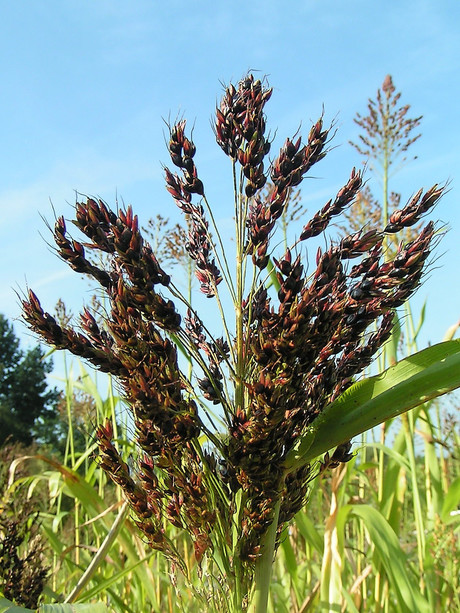Grant to improve sorghum breeding programs

The Donald Danforth Plant Science Center has announced a three-year, $6.1 million grant from the Bill & Melinda Gates Foundation to expand and accelerate the development of advanced sorghum phenotyping and breeding technologies.
Sorghum (Sorghum bicolor) is a member of the grass family that is not only a leading bioenergy feedstock crop in the United States, but also a critical source of nutrition for millions of people living in Sub-Saharan Africa. It is also very resilient to drought and heat stress, with its natural genetic diversity making it a promising system for identifying stress-resistance mechanisms in grasses that may have been lost during the domestication of related cereal crops.
Unfortunately, grain sorghum yields have been flat or declining due to a lack of sufficient investment in the development of new improved varieties. This is now about to change, with the Bill & Melinda Gates Foundation grant set to broaden the impact of the Danforth Center’s TERRA-REF program to optimise breeding strategies for improving the yield and stress tolerance of sorghum.
The Sorghum Genomics Toolbox, led by the Danforth Center with partners from within the US and around the world, will employ cutting-edge technologies to sequence and analyse grain sorghum genomes, capture tens of millions of phenotypic observations over the course of a growing season and accelerate breeding efforts by connecting phenotypes to genotypes in the field. According to the CEO of the National Sorghum Producers, Tim Lust, the investment will “help farmers around the world as they continue to deal with the challenges of advancing sorghum genetics to address climate variability and the need for increased food sustainability”.
“Initially we launched the TERRA-REF project to gain a greater understanding of the phenotypic and genomic variation of bioenergy sorghum and to lay the foundation for genomics-enabled breeding strategies for US sorghum bioenergy feedstock production, but the same strategies are directly extendable to food security crops,” added Dr Todd Mockler from the Danforth Center. “I’m grateful to the Bill & Melinda Gates Foundation for recognising the need to extend the application of advanced genomics and phenomics technologies to food crops that will benefit millions of people living in the developing world.”
How light helps plants survive in harsh environments
Researchers from National Taiwan University have uncovered how light stabilises a key...
SKA-Low's first image of the universe released
The image is an indication of the scientific revelations that will be possible with the...
Which blood test is best at monitoring ALS?
A new study compares three types of blood biomarkers: neurofilament light chain proteins, glial...




